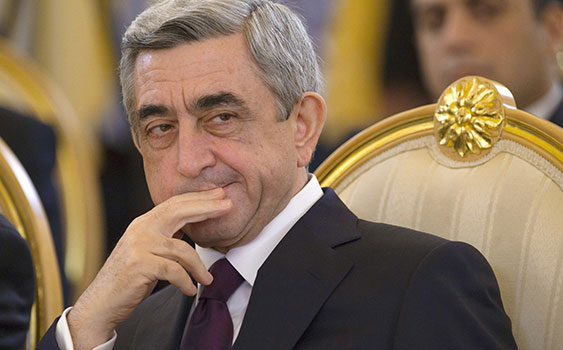
*Translation by Ahmet Can ÖKTEM
The issue of immigration is among Europe’s most severe ones. Especially within the last ten years, the Mediterranean has turned into a grave for immigrants. Despite that the migrant crisis has never lost its urgency for those who have to migrate, Europe and the governments concerned have been silent, and even negligent regarding the situation for years. In recent days, a colossal amount of death and tragedy has occurred at the Mediterranean. Following the incident of a fishing boat sinking in the South of Greece, together with approximately 700 people on board, who are believed to have drowned, eyes are once again turning towards the world’s deadliest migration route and Europe’s failure tackle one of its biggest issues.[1]
The Central Mediterranean is known as the world’s deadliest migration route with more than 17,000 cases of deaths and disappearances recorded by the Missing Migrants Project (MMP) since 2014. The reasons behind this brutal fact are the length of the overseas voyage (which can last for days), the increasingly dangerous smuggling activities, the gaps within the search and rescue operations’ capacity and the restrictions brought on to the non-governmental organizations’ life-saving initiatives. Migrants generally cross the Central Mediterranean with inflatable boats that are unsuitable for open water and are loaded beyond their capacities. There are instances in which multiple boats are put to sea at the same time which significantly complicates the search and rescue operations. The Central Mediterranean is also the route with the highest number of disappearances. It is probable that a much higher number of deaths remain unrecorded. The MMP’s data since 2014 indicates that more than 12,000 people have disappeared at sea on this route.
Since the International Organization for Migration (IOM) launched its Missing Migrants Project in 2014, it has been reported that an estimate of 27,000 people have died or disappeared while attempting to cross the Mediterranean Sea to reach Europe. In short, more than 21,000 of these deaths occurred in attempts to cross the Mediterranean Sea with boats that were unfit for open water and were over-loaded.[2]
Thus far, the majority of the immigrants that have migrated to Greece have passed through Türkiye and have either reached the Greek Islands by boat or have crossed the Evros River along the land border. Following Türkiye’s efficient observation, Athens’ increasing maritime patrols and construction of a border fence, the number of people using this route has dropped steeply. Just three years ago, Greece’s negative treatment towards asylum seekers was widely reported. Despite that there is footage of the incidents, Greece denied the accusations. In 2020, Harward Professor Vasileia Digidiki drew attention to the issue through her article in the The Financial Times titled “Europe Shows a Janus Face to Migrants”.[3] In her article, Digidiki criticized Greece’s inhumane treatment towards the migrants while expressing that Europe, which remained silent, was not innocent. Following the anti-immigrant protests in Greece and in the various European countries, the impact of the pandemic and the European countries closing their borders to the immigrants, the problem became unmanageable.
Three years after the events above, the deaths of the immigrants are being condemned in the current protests taking place in many cities in Greece. The protestors accused Greece and Europe for turning the Mediterranean into a “sea of the dead”.[4] In spite of the records, Greece continuously denies the allegations that it is pushing back the immigrants to Türkiye and illegally preventing them from seeking asylum.[5] Other central and eastern European countries known for implementing harsh policies towards the migrants, such as Hungary and Poland, are firmly rejecting asylum seekers from the south. As for the UK, it is already planning to send the irregular migrants to Rwanda, in violation of international law.[6]
United Nations (UN) Secretary-General Antonio Guterres called on the European Union (EU) to adopt an effective migration policy following the tragedy off the coast of the Peloponnese in Greece (mentioned above) in which many people lost their lives.[7] Even three years prior to this call, accusations were made concerning the lack of a humanitarian plan across the EU. Such a plan is still not on the EU’s agenda. UN Secretary-General Guterres, similarly to the critiques of Harvard Professor Digidiki in her article three years ago, stated that the issue does not only concern Greece, but that it is also a problem of the EU. The Chancellor of Germany, Olaf Scholz, also conveyed that the EU needs to act in unison towards this issue. Following these developments, on June 18th, 2023, Germany’s Minister of Interior Nancy Faeser and France’s Minister of Interior Gérald Darmanin held talks in Tunisia on measures to deal with illegal migration in the Mediterranean. In the written statement, they expressed their aspirations to establish legal migration routes to abolish the inhumane activities of human traffickers, to protect the rights of the refugees and stop the horrific deaths in the Mediterranean.[8] Nonetheless, tensions are increasingly rising due to populist policies, particularly as Greece builds a wall, similar to the wall that former US President Donald Trump established along the Mexican border, along its border with Türkiye and emphasizes that it will continue along this trajectory.[9]
Recently, the UNHCR reported that there has been a record increase of 19,1 million in forced displacement compared to the previous year. Europe is refusing to take accountability in this situation, which is tarnishing its image, and is expecting the world’s most underdeveloped countries to manage it. Even though solemn promises were made during World Refugee Day on June 20th, 2023, the EU and the prosperous EU states have been pursuing an even more ruthless and populistic course over the past decade. Moreover, they persist in their stances, regardless of the reports and calls of the UN.
[1] Jon Henley, “Greece Shipwreck Disaster Exposes Europe’s Deadly Failure,” The Guardian, 15 June 2023, https://www.theguardian.com/world/2023/jun/15/greece-shipwreck-disaster-exposes-europes-deadly-failure.
[2] “Migration Within The Mediterranean,” International Organization for Migration, 14 June 2023, https://missingmigrants.iom.int/region/mediterranean.
[3] Vasileia Digidiki, “Europe Shows a Janus Face To Migrants,” The Financial Times, 20 June 2020, https://www.ft.com/content/7befe84b-6469-4297-abd9-cda45fd842c6.
[4] “BM'den Yunanistan'daki göçmen faciası sonrası AB'ye çağrı: Etkili bir göç politikası belirlenmeli,” EuroNews, 16 June 2023, https://tr.euronews.com/2023/06/16/bmden-yunanistandaki-gocmen-faciasi-sonrasi-abye-cagri-etkili-bir-goc-politikasi-belirlenm.
[5] Henley, “Greece Shipwreck Disaster Exposes Europe’s Deadly Failure.”
[6] “The Guardian view on migrant tragedy: pieties are not enough,” The Guardian, 15 June 2023, https://www.theguardian.com/commentisfree/2023/jun/15/the-guardian-view-on-another-migrant-tragedy-pieties-are-not-enough.
[7] “BM'den Yunanistan'daki göçmen faciası sonrası AB'ye çağrı,” EuroNews.
[8] “Alman ve Fransız Bakanlar Göçle Mücadele İçin Tunus’ta,” EuroNews, 18 June 2023, https://tr.euronews.com/2023/06/18/alman-ve-fransiz-bakanlar-kacak-gocle-mucadele-icin-tunusta.
[9] “The Guardian view on migrant tragedy: pieties are not enough,” The Guardian.
© 2009-2025 Center for Eurasian Studies (AVİM) All Rights Reserved
No comments yet.
-
 THE NEVER-ENDING INCONSISTENCIES OF MACRON
THE NEVER-ENDING INCONSISTENCIES OF MACRON
Hazel ÇAĞAN ELBİR 23.12.2020 -
 EXAMPLES OF WIKIPEDIA'S FREQUENT DOUBLE STANDARDS: “WESTERN AZERBAIJAN” AND “WESTERN ARMENIA”
EXAMPLES OF WIKIPEDIA'S FREQUENT DOUBLE STANDARDS: “WESTERN AZERBAIJAN” AND “WESTERN ARMENIA”
Hazel ÇAĞAN ELBİR 11.12.2024 -
 CHURCH-STATE TENSIONS IN ARMENIA: THE ARF’S HARSH RESPONSE AND ITS REGIONAL IMPLICATIONS
CHURCH-STATE TENSIONS IN ARMENIA: THE ARF’S HARSH RESPONSE AND ITS REGIONAL IMPLICATIONS
Hazel ÇAĞAN ELBİR 04.02.2026 -
 EXTREMIST KURDISH – ARMENIAN COOPERATION IN HISTORY
EXTREMIST KURDISH – ARMENIAN COOPERATION IN HISTORY
Hazel ÇAĞAN ELBİR 28.02.2017 -
 ANOTHER NUMBERS GAME BY ARMENIAN DIASPORA AND ARMENIAN GOVERNMENT
ANOTHER NUMBERS GAME BY ARMENIAN DIASPORA AND ARMENIAN GOVERNMENT
Hazel ÇAĞAN ELBİR 25.09.2017
-
 THE SO-CALLED 'ELECTIONS' IN NAGORNO-KARABAKH
THE SO-CALLED 'ELECTIONS' IN NAGORNO-KARABAKH
Ali Murat TAŞKENT 04.10.2015 -
 KURZ HAS BEEN APPOINTED AS THE CO-CHAIR TO THE ANTI-RACISM GROUP
KURZ HAS BEEN APPOINTED AS THE CO-CHAIR TO THE ANTI-RACISM GROUP
Hazel ÇAĞAN ELBİR 27.01.2022 -
 FACTORIES USING FORCED LABOUR OF THE UYGHURS PROVIDE SUPPLIES FOR 83 WELL-KNOWN BRANDS
FACTORIES USING FORCED LABOUR OF THE UYGHURS PROVIDE SUPPLIES FOR 83 WELL-KNOWN BRANDS
Gülperi GÜNGÖR 09.03.2020 -
 INTERNATIONAL DAY TO COMBAT ISLAMOPHOBIA
INTERNATIONAL DAY TO COMBAT ISLAMOPHOBIA
Gülperi GÜNGÖR 29.03.2021 -
THE UNACCEPTABLE STATUS QUO IN NAGORNO-KARABAKH AND LITHUANIA
Alev KILIÇ 01.03.2013
-
25.01.2016
THE ARMENIAN QUESTION - BASIC KNOWLEDGE AND DOCUMENTATION -
12.06.2024
THE TRUTH WILL OUT -
27.03.2023
RADİKAL ERMENİ UNSURLARCA GERÇEKLEŞTİRİLEN MEZALİMLER VE VANDALİZM -
17.03.2023
PATRIOTISM PERVERTED -
23.02.2023
MEN ARE LIKE THAT -
03.02.2023
BAKÜ-TİFLİS-CEYHAN BORU HATTININ YAŞANAN TARİHİ -
16.12.2022
INTERNATIONAL SCHOLARS ON THE EVENTS OF 1915 -
07.12.2022
FAKE PHOTOS AND THE ARMENIAN PROPAGANDA -
07.12.2022
ERMENİ PROPAGANDASI VE SAHTE RESİMLER -
01.01.2022
A Letter From Japan - Strategically Mum: The Silence of the Armenians -
01.01.2022
Japonya'dan Bir Mektup - Stratejik Suskunluk: Ermenilerin Sessizliği -
03.06.2020
Anastas Mikoyan: Confessions of an Armenian Bolshevik -
08.04.2020
Sovyet Sonrası Ukrayna’da Devlet, Toplum ve Siyaset - Değişen Dinamikler, Dönüşen Kimlikler -
12.06.2018
Ermeni Sorunuyla İlgili İngiliz Belgeleri (1912-1923) - British Documents on Armenian Question (1912-1923) -
02.12.2016
Turkish-Russian Academics: A Historical Study on the Caucasus -
01.07.2016
Gürcistan'daki Müslüman Topluluklar: Azınlık Hakları, Kimlik, Siyaset -
10.03.2016
Armenian Diaspora: Diaspora, State and the Imagination of the Republic of Armenia -
24.01.2016
ERMENİ SORUNU - TEMEL BİLGİ VE BELGELER (2. BASKI)
-
AVİM Conference Hall 24.01.2023
CONFERENCE TITLED “HUNGARY’S PERSPECTIVES ON THE TURKIC WORLD"









